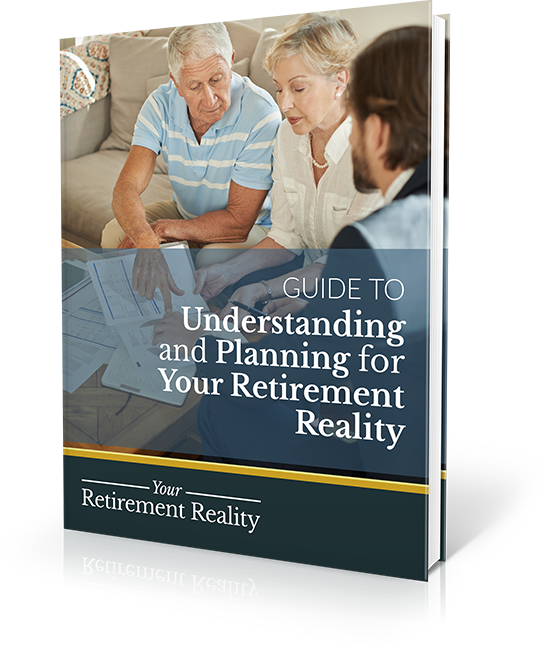3 Expenses to Remember in Retirement
A big part of planning for retirement is developing a budget. Your retirement budget should give you an idea of how much income you will need in retirement. By developing a budget, you can also make adjustments where needed so your planned expenses fit within your projected income.
Your budget may include a number of different items. You will likely have some fixed expenses, such as housing, insurance, utilities and possibly debt payments. You will also have some discretionary expenses. Discretionary expenses are optional and adjustable, such as dining out, entertainment, shopping and travel.
There are a few other less-obvious expenses that shouldn’t be ignored. These expenses may fly under the radar, but they can have a big impact on your financial stability in retirement. As you approach retirement, be sure to consider these three big costs and how you can manage them.
1. Health care
Every year, Fidelity conducts a study analyzing health care costs in retirement. In the 2015 version, researchers found the average 65-year-old couple will face $245,000 in health care expenses during retirement.1 That number includes out-of-pocket expenses like premiums, deductibles, copays and prescription drug costs. That figure does not, however, include long-term care costs.
Health care is a major expense for many retirees. As you get older, you may be more vulnerable to illness or injury. You could be susceptible to a cognitive disorder like Alzheimer’s that requires long-term care. Treatment for these issues can lead to substantial out-of-pocket costs.
Fortunately, there are a few steps you can take to manage these expenses. You can contribute to a health savings account while you are still working, so you have a reserve available to pay for health care costs in a tax-efficient manner. You also may want to consider long-term care insurance to pay for nursing home stays or in-home care.
The most important step, though, may be to invest in your own health and well-being. Exercise regularly. Commit to a healthy diet. Perhaps take advantage of your current coverage and get any treatment or procedures needed to address lingering issues. The healthier you are, the lower your health care costs are likely to be.
2. Inflation
Inflation is a sneaky expense because it happens gradually over time. Price increases for things like clothing and groceries don’t happen overnight, but rather over long stretches and in small increments. However, those small increases in prices can add up over the course of your retirement.
Consider the fact that you may be retired for decades. If the country experiences only 3 percent annual inflation over a 24-year retirement, you could see prices for basic items double. If you’re on a fixed income, you may find it harder and harder to purchase the goods you need to live comfortably.
The good news is you can take steps to fight inflation. One of the most effective steps is to maintain a diversified allocation among your investment accounts. Don’t be too conservative. Yes, it’s natural to be averse to risk and volatility. However, if you don’t take any risk, you may not have much return. That could make it difficult for you to grow your assets and fight inflation.
3. Taxes
Just because you stop working doesn’t mean you stop paying taxes. You will likely have several income sources in retirement. Many, if not all, of those sources could be taxable.
For instance, a portion of your pension income could be taxable, as could withdrawals from 401(k) plans and traditional IRAs. Your Social Security benefits may even be taxable, depending on how much income you have from other sources.
To manage your taxes, consider tax-efficient distribution vehicles like a Roth IRA. In a Roth IRA, your earnings grow tax-free and then your withdrawals are also tax-free, assuming you are 59 ½ or older. You can also convert your traditional IRA into a Roth IRA to create a tax-free income stream in retirement. However, that approach does come with some limitations and may result in taxes.
Don’t forget to plan for these three substantial expenses. Talk to your financial professional to develop a strategy for dealing with health care costs, inflation and taxes. They can help you find the best strategy to meet your goals and needs.
1https://www.fidelity.com/about-fidelity/employer-services/health-care-costs-for-couples-retirement-rise
This information is designed to provide a general overview with regard to the subject matter covered and is not state specific. The authors, publisher and host are not providing legal, accounting or specific advice for your situation. By providing your information, you give consent to be contacted about the possible sale of an insurance or annuity product. This information has been provided by a Licensed Insurance Professional and does not necessarily represent the views of the presenting insurance professional. The statements and opinions expressed are those of the author and are subject to change at any time. All information is believed to be from reliable sources; however, presenting insurance professional makes no representation as to its completeness or accuracy. This material has been prepared for informational and educational purposes only. It is not intended to provide, and should not be relied upon for, accounting, legal, tax or investment advice.
15536 – 2016/3/31

Reality Check: It Might Be Time to Revisit Your Retirement Income Plan
Funding your retirement today has changed dramatically from planning a retirement income a few decades ago. Today’s economic circumstances have created a new reality that requires a different approach.
Download Now
